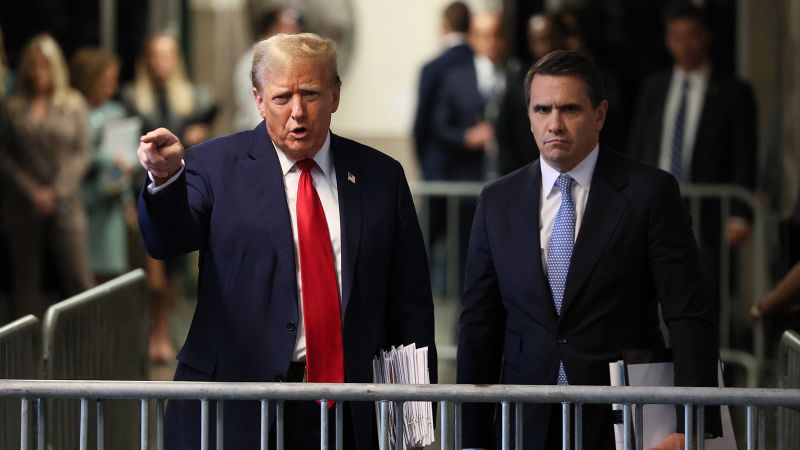
Former President Donald Trump is facing a significant legal day on Thursday, April 25, 2024, as the Supreme Court hears arguments on his claim to 'absolute immunity' from criminal prosecution for any official acts committed during his presidency. The case centers around Trump's efforts to subvert the results of the 2020 election and is a test for presidential power and immunity after leaving office.
The Supreme Court will consider whether Trump can be held liable for actions taken while in office, including seeking to recruit bogus slates of electors, pressuring officials like Vice President Mike Pence to alter vote counts, and obstructing congressional proceedings. Trump's legal team argues that these actions were official duties and thus cannot be subjected to criminal prosecution.
The question of presidential immunity from criminal prosecution after leaving office has never been definitively answered by the Supreme Court. Previous presidents, such as Richard Nixon, have faced allegations but were not prosecuted while in office. Once Nixon resigned, he accepted a pardon from President Gerald Ford rather than face charges.
Trump's argument for immunity is broader and contends that he cannot be prosecuted ever for his official acts as president unless impeached, convicted by the Senate, and removed from office. The Supreme Court case is not only a test for presidential immunity but also a test for the court itself on both substance and timing.
Trump's definition of a protected official act is broad, encompassing an order given by the commander in chief to the military. In February, a three-judge appeals court panel ruled against Trump on the immunity question and he then appealed to the Supreme Court. Trump will not be present at the Supreme Court hearing but is required to attend his New York trial on charges related to falsifying business records.
The outcome of this case could have significant implications for future presidents, as it may determine whether they are immune from prosecution after leaving office. The 2024 election will take place in the shadow of the criminal justice system, with Trump's trial potentially influencing voter perceptions and decisions.




